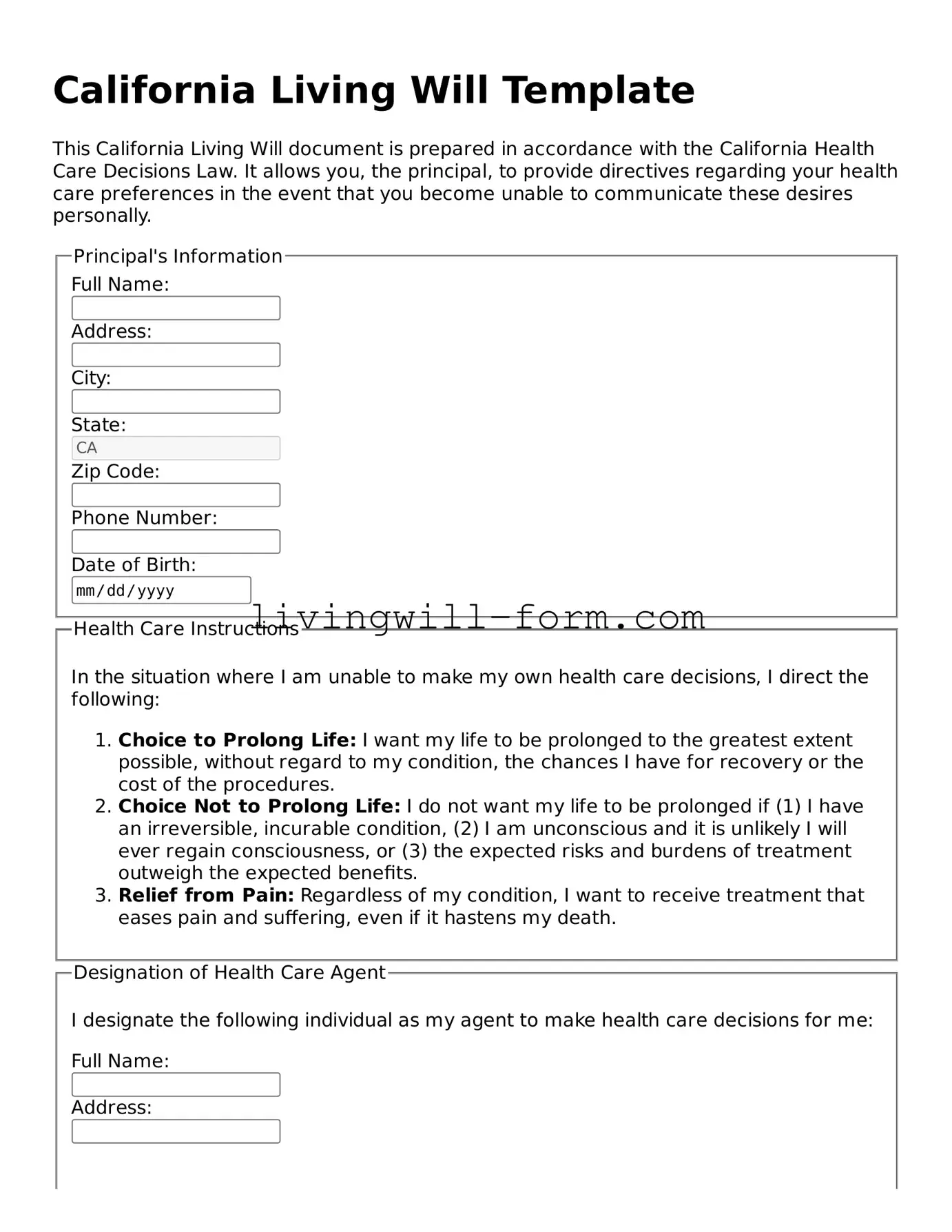What is a California Living Will?
A California Living Will, also known as an Advance Health Care Directive, is a legal document that outlines your preferences for medical treatment in scenarios where you are unable to make decisions for yourself. This can include end-of-life care and decisions regarding life-sustaining treatment.
Who should have a California Living Will?
Anyone over the age of 18 who wants to have control over their medical treatment in the event they are incapacitated should consider creating a Living Will. It's particularly important for those with strong preferences about their health care or individuals with serious health conditions.
How do I create a California Living Will?
To create a Living Will in California, you must complete an Advance Health Care Directive form. This form allows you to specify your health care preferences and appoint a health care agent. It must be signed in the presence of two witnesses or a notary public to be legally valid.
Can I appoint someone to make health care decisions for me in my California Living Will?
Yes, part of creating a Living Will in California involves appointing a health care agent. This person, also known as a durable power of attorney for health care, will make decisions about your medical care if you're unable to do so yourself.
Do I need a lawyer to create a California Living Will?
While it's not a requirement, consulting with a lawyer can be helpful, especially in complex situations or if you have specific legal questions. However, many people successfully complete a Living Will without legal assistance by following the form instructions carefully.
What should I do with my completed California Living Will?
Once your Living Will is signed and witnessed (or notarized), you should inform your health care agent, family, and primary physician about the document and provide them with copies. It's also wise to keep a copy in a safe but accessible place.
Can I change my California Living Will?
Yes, you can change or revoke your Living Will at any time as long as you are of sound mind. To do so, you should complete a new Living Will form, ensuring it is properly witnessed or notarized, and inform your health care agent and anyone else who had a copy of the previous version.
Is a California Living Will the same as a Do Not Resuscitate (DNR) order?
No, a California Living Will is not the same as a Do Not Resuscitate (DNR) order. A Living Will outlines your wishes for various types of medical treatment in the event that you cannot speak for yourself, while a DNR specifically addresses the issue of CPR (cardiopulmonary resuscitation) and other life-saving measures.
What happens if I don't have a California Living Will?
Without a Living Will, decisions about your health care will be made by your family, healthcare providers, or, in some cases, through judicial intervention, according to state laws. This can lead to decisions that might not align with your personal preferences or cause conflicts among family members. Thus, having a Living Will helps ensure your wishes are known and followed.

